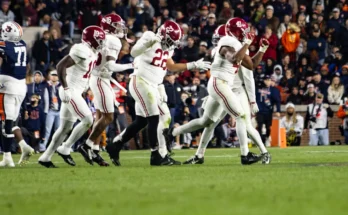Connor McDavid’s Contract Future Looms Large as Oilers GM Emphasizes Patience, Readiness, and Commitment to Franchise Cornerstone
The Edmonton Oilers have become synonymous with Connor McDavid, and it’s not hard to see why. Since being drafted first overall in 2015, McDavid has blossomed into the NHL’s most electrifying player, a generational talent whose speed, vision, and leadership have defined the franchise’s modern identity. Now, with two years remaining on his current deal, conversations around his future in Edmonton are beginning to swirl. But if you ask Oilers General Manager Jeff Jackson, there’s no rush. The talks will start “whenever they’re ready,” a phrase loaded with patience, intent, and an undercurrent of cautious optimism.
McDavid’s current eight-year, $100 million contract, signed in 2017, was groundbreaking at the time, both in terms of its financial implications and what it symbolized: Edmonton had its man, and its man was ready to lead. Since then, McDavid has delivered at every level—multiple Art Ross trophies, a Hart Memorial Trophy, and a seemingly endless highlight reel of jaw-dropping plays. But what remains elusive is the ultimate goal: a Stanley Cup championship.
For Edmonton fans, the thought of McDavid hitting free agency in the summer of 2026 is as unsettling as it is improbable. Yet, in today’s NHL, even the idea of franchise players testing the open market has become less taboo. Players are more empowered, front offices are more calculating, and the stakes are higher than ever. In this context, Jackson’s words aren’t just a throwaway line—they’re a strategic message of calm, control, and commitment.
“Connor is the heart of our team,” Jackson said during a media availability session this week. “We have a great relationship. When the time is right, we’ll sit down and have those conversations. But there’s no pressure, no timeline.”
This approach aligns with McDavid’s own personality. The Oilers captain has never been one to publicly demand, hint, or stir drama. He’s methodical, focused, and clearly invested in the team’s success. His leadership style has matured year by year, and the deep playoff run in 2024—where the Oilers came just short of hoisting the Cup—only solidified his stature.
Still, timing matters. While McDavid technically cannot sign an extension until July 1, 2025, the groundwork for a deal often begins well in advance. It’s about conversations, shared visions, and aligning future plans. That process, according to Jackson, won’t be forced.
“We respect Connor. We’re not going to treat this like a business negotiation from day one,” Jackson explained. “It’s a partnership. He knows what we’re building here.”
Indeed, what the Oilers are building is impressive. With Leon Draisaitl also nearing the end of his current contract—set to expire after the 2025-26 season—the team faces dual challenges in keeping its superstar core intact. Draisaitl, like McDavid, has been instrumental in Edmonton’s resurgence. The chemistry between the two is arguably the most potent 1-2 punch in the league.
Locking up both players long-term would be a franchise-defining achievement, but it won’t come cheap. Market conditions have shifted since McDavid’s last deal. Auston Matthews recently signed a four-year extension worth $13.25 million annually. David Pastrnak, Nathan MacKinnon, and Jack Hughes have all inked lucrative deals that reflect the league’s rising salary cap and shifting financial landscape.
By 2026, McDavid could command an average annual value (AAV) well north of $15 million. And he’ll be worth every penny.
That said, Edmonton’s front office must juggle several priorities. A competitive roster demands balance, depth, and flexibility. They’ll need to continue surrounding McDavid and Draisaitl with quality talent, from top-line wingers to reliable defensemen and goaltending stability. That’s why the timing of any McDavid contract extension matters—not just to secure the superstar but to project and manage future cap commitments.
“There’s a bigger picture here,” Jackson acknowledged. “We want to win. Connor wants to win. Everything we do, every decision we make, it’s through that lens.”
There’s also the emotional weight of the situation. McDavid’s relationship with the city of Edmonton is unique. He’s endured the highs and lows, from early rebuild frustration to playoff heartbreaks, and now to a team that’s on the cusp of greatness. Fans adore him, his teammates trust him, and the front office respects him.
Yet, uncertainty lingers—because it must. Even the most optimistic Oilers supporter has to acknowledge that until pen hits paper, the future is speculative. McDavid has always said the right things about his love for the team and the city, but elite athletes have finite windows. He’ll want assurance that the Oilers remain in contention mode for the duration of his prime.
Jackson’s familiarity with McDavid could be a crucial factor. Before becoming the Oilers GM, Jackson was McDavid’s longtime agent. Their bond is deep, built on years of trust and collaboration. That history might give Edmonton a unique edge when the serious contract talks begin. Jackson’s understanding of McDavid’s values, goals, and motivations isn’t theoretical—it’s personal.
“He knows me, I know him,” Jackson said. “That kind of relationship is rare in this business. It doesn’t mean things are guaranteed, but it helps. A lot.”
One could argue that the Oilers are playing this exactly right. There’s no need to apply pressure or risk agitating their most important player. By showing respect and patience, they’re creating an environment where McDavid feels valued and empowered.
There’s also a strategic component. By deferring talks until a later point, Edmonton can observe how the 2025 season unfolds, assess their roster performance, and determine their long-term cap strategy with more clarity. They can also see where the salary cap settles following expected increases tied to league revenue growth.
From McDavid’s side, patience makes sense too. He holds all the leverage. He can wait to see how the team performs, how management continues to build, and how other star contracts evolve across the NHL. The longer he waits, the more potential he has to command a groundbreaking deal—financially, structurally, or both.
Speculation will ramp up over the next 12 months. Pundits will analyze every quote, every lineup change, and every transaction through the lens of “what does this mean for McDavid?” That scrutiny comes with superstardom, and McDavid has always handled it with remarkable composure.
What the Oilers do between now and next summer will speak volumes. Continued investment in elite talent, a strong locker room culture, and evidence that they can win when it matters most—all of these will factor into McDavid’s decision.
And what about Draisaitl? His contract situation may actually be the first domino. While the two stars are close friends and teammates, their individual decisions could influence one another. If Draisaitl re-signs early, it may signal to McDavid that the foundation is secure. If he walks—or delays—questions will mount.
Ultimately, Jackson’s “whenever they’re ready” comment isn’t just a placeholder—it’s a strategy. It’s about setting a tone of mutual respect and shared purpose. It’s about letting the future unfold with clarity and purpose, not panic.
In a league where players often seek change for the sake of change, McDavid remains a throwback: loyal, team-first, driven by legacy. Edmonton fans hope that legacy continues in orange and blue. The front office is working to make sure it does.
Until then, the hockey world will watch, wait, and wonder. Because when it comes to Connor McDavid, every move matters.



